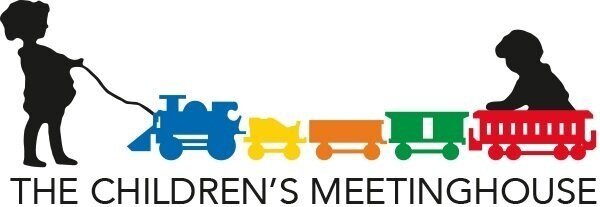What is Reggio Emilia & how do the children learn?
The Reggio Emilia approach is an educational philosophy and pedagogy focused on preschool and primary education. This approach is a student-centered and self-guided curriculum that uses self-directed, experiential learning in relationship-driven environments. When planning curriculum we follow the child’s lead by listening to conversations and play. The teachers are constantly planning and documenting to make that learning visible for the community. The children learn through social play and teacher modeling. We learn and grow together as a community! Children learn through free play and need opportunities to take risks, test their limits, and learn new skills.
How does Reggio Emilia prepare you for Kindergarten?
Although our approach is not traditional, we are confident your child will be equipped with the language, social skills and independence necessary to be successful in Kindergarten. We incorporate the necessary Kindergarten readiness skills into the curriculum and project work towards the second half of the year helping the children who will be transitioning.
How do teachers at TCM handle behaviors and conflict?
The developmental milestones of this age range can be turbulent. Socially and emotionally, children are battling with power and control as they gain a vast vocabulary and understanding of how the world works around them. They develop ways to meet their needs as they gain independence and autonomy over their physical and linguistic skills. It is important for parents and caregivers of this age range to understand the changes taking place. Managing these behaviors builds a foundation for future development and behavior. Now is the time to instill your beliefs for manners, good will, and ethical conduct. TCM models language for the children and families to use to ensure we are all on the same page and working as a team together. We consistently ask the children to check in on each other to ensure they are able to understand feelings and have empathy towards one another. Ask your child’s teacher for TCM’s behavior document!
Do you go outside in all weather?
Yes! All TCM children go outside in all weather conditions. We ask all parents to bring their children to school with weather appropriate gear to ensure they will have a successful time outside. Being physically active by playing outdoors and in nature can help children develop strong bodies and meet important developmental milestones for movement and physical development. Children who play outside are more likely to develop observational and reasoning skills. Outdoor play helps babies learn about different surroundings and feel more comfortable with the world around them.It’s natural to worry that your child could get hurt when playing outside. And sometimes your child might be worried about trying something new. These are natural worries, but they shouldn’t keep your child from playing outside. It’s OK for your child to push the play boundaries outside, where they have room to run faster, climb higher and jump further.
Does TCM value teacher retention? How long has your staff been employed there?
At TCM we value teacher retention to show the children who are enrolled here some stability and security. If the children and families know who they will be walking into in the morning it is more likely they will have a better day. As of right now we have 3 teachers who have been at TCM between 2-3 years. Our Assistant Director Linda has been at TCM for many years and our Director Amanda was previously a teacher here before Director. TCM’s favorite sub Liz has sent her now grown children to TCM and loves her time here! We do our very best to instill value and trust in our educators!
What do parents do when you are closed for the summer?
Parents send their children to various camps in the area and find nanny share opportunities
How do staff work with parents during potty training?
During toddlerhood, toileting is a large part of the child’s year. We recommend having your child become familiarized with toilets and toileting as early as possible. Having an open-door policy when it comes to toileting will help your child become confident in their bodily functions and abilities. We recommend purchasing a child sized toilet to put in the bathroom. Ask your child if they would like to sit on it during each diaper change. This will naturally encourage beginning a toileting routine and promotes conversation between child and parent. In the classroom, we use anatomically correct vocabulary during these conversations. Encouraging children to have a toilet turn, read a book on the toilet, or sing a song are all ways they become more comfortable with sitting for longer periods of time. Ask your child’s teacher for TCM’s toilet training document!
What does rest time look like in Preschool?
Rest time in Preschool starts out with a book or two. We listen to the books on the speaker to help the children relax their bodies and get comfortable. Once the books are finished we turn on the school music. The children are expected to rest at least 45 minutes via EEC guidelines. Our preschoolers usually rest for about an hour to an hour and a half. If children are still awake after 45 minutes we hand out quiet fidget toys and allow them to read their books quietly.
Why does TCM value small teacher-child ratios?
At TCM we put a lot of effort into ensuring the teacher-child ratios are small. We believe this is the best way to have the most meaningful learning and small group experiences. This also allows us to do small group work in either our indoor studio or outdoor studio. We are able to focus more on the individual child and their needs.
